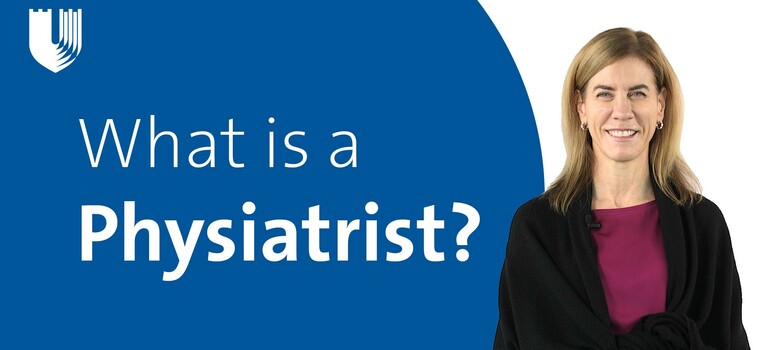When Can a Doctor Help Your Back Pain?
Answers to Common Back Pain Questions

More than eight in 10 people will experience upper, mid, or low back pain at some point in their lives. Low back pain is the most common back pain. In most cases, the pain goes away over time. If your back pain is severe or does not improve, you may need medical care. Here are answers to some common questions about back pain and tips on when to seek help.
Why Does My Back Hurt?
There are various causes of back pain, including muscle pain with or without muscles spasms, disc pain, joint pain, or nerve pain. In most cases, these are not harmful or dangerous.
“Muscle pain is the most common acute back pain. The period of acute pain is usually limited and may be treated at home or by primary care doctors. Sometimes, these patients may be referred to doctors who specialize in back pain. Some back pain can be a symptom of a more serious problem, like a fracture, infection, or cancer in the spine,” said H. Michael Guo, MD, a Duke physiatrist (physical medicine and rehabilitation doctor) who specializes in spine care. “These patients should be seen by spine doctors. Fortunately, spine infections and cancer are very rare and usually only affect people with special risk factors. Spine fractures are also rare and may be associated with thinned spine bones, osteopenia, osteoporosis, or injuries.”
When Should I See a Doctor for Back Pain?
When your back first starts to hurt, try taking an over-the-counter pain reliever (for example, aspirin, ibuprofen, or acetaminophen) and applying ice to the affected area in the first 48 hours. You may apply heat after 48 hours. You may need to take it easy for a while, but “it’s best to stay as active as you can tolerate, and to avoid absolute bed rest,” said Dr. Guo.
If your back pain lasts more than two weeks and keeps you from participating in normal, daily activities, see your family doctor. If your pain is severe, you should see a doctor sooner. You should seek urgent medical care if you have:
- Fever associated with back pain
- Back pain after trauma
- Loss of bladder or bowel control
- Loss of strength in your arms and legs
- Unexplained weight loss associated with back pain
Also, always be more cautious if you have special risk factors for cancer, infection, or fractures that may affect the spine.
What Doctor Should I See for Back Pain?
If your back pain is from a recent strain or mild injury, your primary care doctor can probably help. But if the pain is severe, ongoing, or accompanied by other symptoms such as numbness or tingling in your arms or legs, it may be time to see a back doctor. Start with someone who specializes in nonsurgical treatment for back pain. This can include a physiatrist, chiropractor, physical therapist, orthopaedic physician assistant, or nurse practitioner. They can evaluate your condition and offer appropriate treatments to help alleviate your pain. Depending on your circumstances, they might also refer you to another type of back specialist -- for example, a pain management specialist or spine surgeon.
What Happens When I Visit a Back Doctor?
“We gather a full medical history of your back problems and perform detailed physical examinations,” said Dr. Guo. “That includes checking for tenderness, spine range of motion, arm or leg strength, sensation, and reflexes. Depending on your symptoms, we may perform provocative tests to find out what triggers your pain. We may order imaging studies, such as X-rays, MRIs, or CT scans. We may order electromyography and a nerve conduction study, which assess whether you have muscle and/or nerve problems that may cause your symptoms. We use all the information to help identify the cause(s) of your back pain and associated symptoms, and provide the most appropriate treatments for you.”
What If I Don’t Want Surgery for My Back Pain?
Fortunately, most people with back pain don’t need surgery. “We usually take a conservative approach first, using a wide variety of nonsurgical spine treatments,” said Dr. Guo. “For example, I might send you for physical therapy or chiropractic therapy with the home exercises. I might recommend medications such as anti-inflammatories, muscle relaxants, or some nerve-pain medications. We offer spine injections, including epidural injections, joint injections, and nerve blocks and ablation if your back pain fails to improve with the conservative treatments.” Chances are, one of these approaches will help reduce your back pain and improve your function and quality of life.




